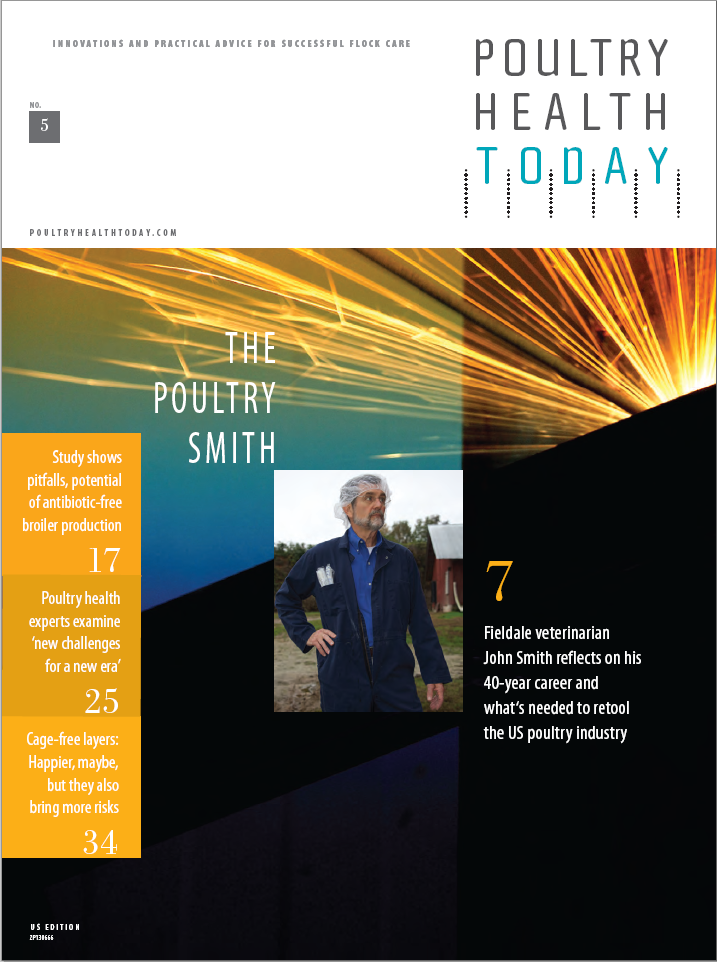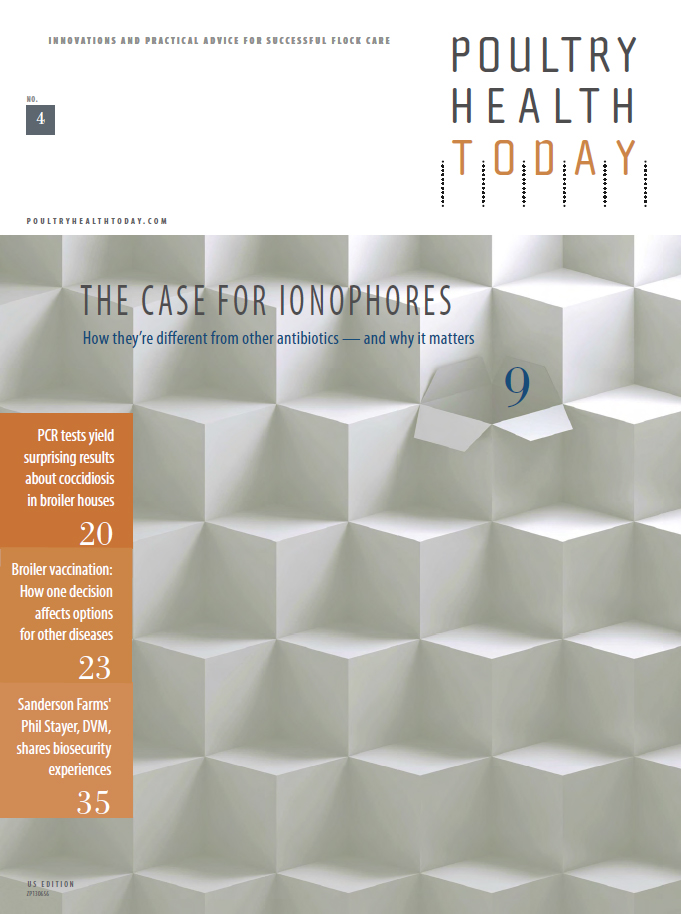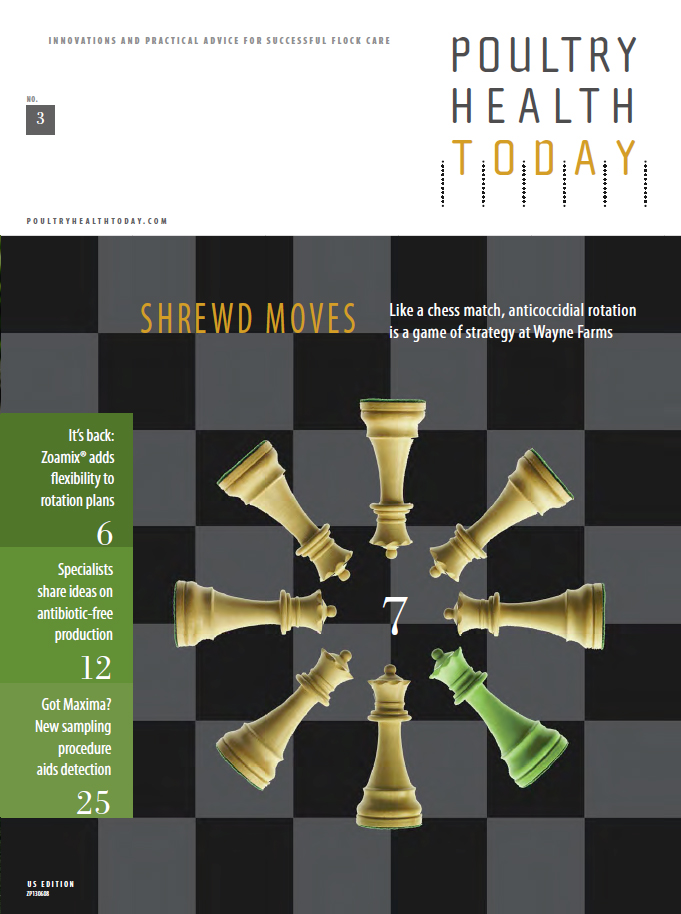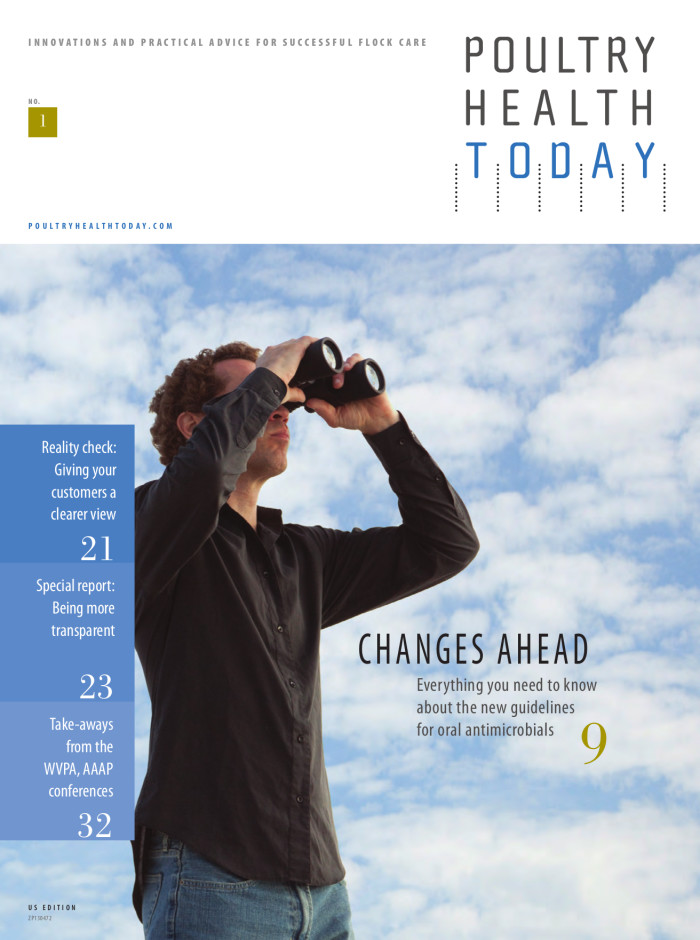

Give antimicrobial field trials a second look

Broiler producers should avoid making decisions about antimicrobial use based on studies or field trials involving just one flock, cautions Mark LaVorgna, PhD, director of global technical services, poultry, Zoetis Inc.
In a floor-pen study of three consecutive grow-out cycles conducted by LaVorgna and colleagues, broilers were fed either the broad-spectrum antibiotic virginiamycin, bacitracin methylene disalicylate, which has a narrower spectrum, or combinations of both.
During the first grow-out cycle, the virginiamycin-fed broilers had better feed conversion and processing weight, but by the third grow-out, their mortality was 4% higher compared to bacitracin-fed broilers, LaVorgna and colleagues found in their study, which was published last year in the Journal of Applied Poultry Research.
"The higher mortality was due primarily from bacterial infection, and while it may have been incidental, it could be due to the broad-spectrum suppression of beneficial microflora in the gut by virginiamycin," he says.
Microbial suppression may help channel energy to bird growth rather than to microbial proliferation; however, over consecutive grow-out cycles, it may also create gut dysbiosis that makes birds vulnerable to opportunistic infection, LaVorgna says.
He notes that more research is needed to determine if broad-spectrum suppression of lactic acid-producing gut flora is responsible both for increased weight gain and increased vulnerability to bacterial infection and mortality.
In another field trial in North Africa involving 15 different farms with a history of E. coli colibacillosis, no preventive in ovo or in-feed antibiotics were administered. Compared to controls, broilers vaccinated with Poulvac E. coli had an overall better average daily gain and FCR and fewer E. coli lesions. When antibiotic treatment was needed, it was necessary for a shorter duration, Cookson said.
More Issues












